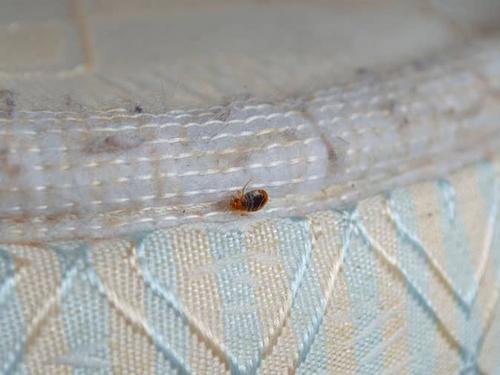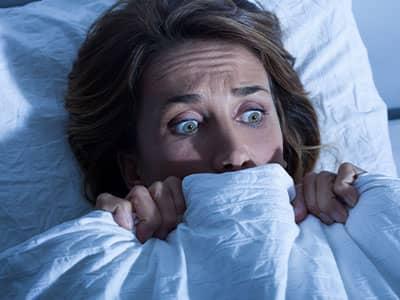Why Wasps Get More Aggressive in Late Summer (And What You Can Do About It)
As July winds down, you're probably trying to enjoy every last bit of summer—backyard BBQs, patio dinners, and long afternoons outdoors. But as the days slowly get shorter and the evenings start to cool, don’t be surprised if you start noticing more uninvited guests: wasps.
In Denver and throughout Colorado, wasp activity tends to ramp up in late summer, and August is often when they’re most noticeable and most aggressive. You may see them hovering around food, drinks, trash cans, or even your deck. That’s because by this time of year, wasp colonies are at their largest, natural food sources start to dwindle, and the workers become more defensive and scavenger-like.
If you’re wondering why they seem so much worse now and what you can do to protect your family and your property, keep reading. We’ll explain what’s going on with wasps this time of year in Colorado and how to reduce your risk of stings or infestations.

The Science Behind the Surge
Wasps have a predictable life cycle. In the spring, queens become active, find a suitable place to build a nest, and start laying eggs. As the eggs hatch and the new wasps mature, they begin to help the queen by finding food and taking care of the young.
As summer begins to wrap up, the queens stop laying eggs, and the workers lose their primary role as caretakers. When this happens, they become restless. They no longer have a job to do, and they only have themselves to feed and look after.
This restlessness coincides with a slow decline in food sources. As crops and plants die off, wasps find it more difficult to find food. They’ll forage in areas where they may not have roamed earlier in the season, increasing the odds of coming into contact with humans.
This drive for food and increase in contact with humans, along with their normal drive to protect their colony, can lead to more aggressive behavior in late summer.
Common Late-Summer Wasp Hotspots
Knowing where wasps are likely to show up around your property in late summer can help you be aware of their presence and hopefully avoid an unpleasant encounter. These are some of the most common places for wasps to show up:
- Outdoor eating areas, including picnic tables, patios, and decks
- Outdoor trash bins, especially ones with open food containers, leftover food, and ill-fitting lids
- Ripe/rotting fruit trees
- Compost piles
- Cracks in siding, eaves, sheds, or attic vents
What Attracts Wasps to Your Property
Wasps are attracted to the things that they need for survival. In late summer, they already have a well-established nest, so they don’t need shelter, but they do still need food and water. All of the following items could attract wasps to your property:
- Sugary drinks
- Fallen fruit
- Meat scraps
- Unsealed trash cans
- Recycling bins
- Pet food left outdoors
- Standing water in bird baths, kiddie pools, puddles, clogged gutters, and other areas
- Leaking pipes and dripping spigots
- Brightly colored flowers and clothing
What You Can Do to Reduce Wasp Aggression
At this time of year, the wasps you encounter are likely to be more aggressive than usual. The best way to reduce wasp aggression is to avoid a wasp encounter. The best way to avoid a wasp encounter is to free your yard from as many attractants as possible, especially when you’re spending time outside. Reducing wasp attractants includes:
- Keeping food and drinks covered when eating outdoors
- Thoroughly cleaning up after outdoor meals
- Regularly emptying and sealing trash and recycling bins
- Picking up fallen fruit
- Eliminating areas of standing water
- Fixing drippy spigots and leaking pipes
- Cleaning your gutters
- Not wearing bright clothing or strong perfumes when outdoors
If you do encounter a wasp while outdoors, the most important thing you can do is stay calm. Swatting at a wasp can provoke it to sting because it will feel threatened.
When to Call Enviropest
It’s not always easy to know when wasp activity goes from being “no big deal” to a real concern for you and your family. While there’s no hard-and-fast rule about when to call in the pros, here are a few signs it’s time to reach out to EnviroPest:
- You see lots of wasps around your home, especially in the outdoor areas where you spend the most time.
- You’ve spotted a nest or noticed wasps coming and going through small openings in your home.
- You or a family member has a known allergy to wasp stings.
- You want the problem handled without putting yourself at risk.
If any of these situations sound familiar, it’s time to call EnviroPest. We offer fast, affordable, and most importantly, effective pest control. Our team can remove wasp nests and take steps to help keep them from coming back.
Don’t let wasp activity ruin the rest of your summer. Contact EnviroPest today and reclaim your outdoor space.

Testimonials
GETTING STARTED IS AS EASY AS 1-2-3
REQUEST FREE ESTIMATE
Pest Solutions For Homes & Businesses
We understand that pest problems can be unsettling and frustrating, but the solution shouldn't be. For over 55 years, we've been helping folks right here in Colorado take care of ants, spiders, mice, mosquitoes, wasps, bed bugs, bats and most other creepy crawly things. We'll get there fast to solve the issue quickly and affordably - Guaranteed.



